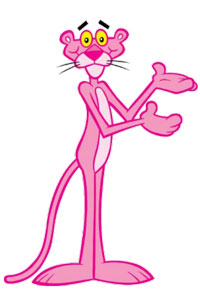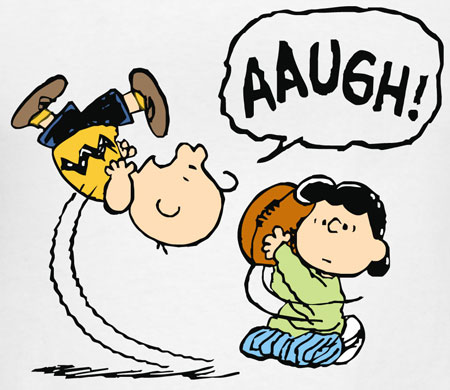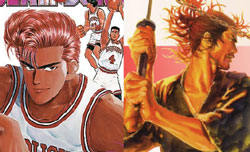
Paul Chadwick’s Concrete first appeared in Dark Horse Presents #1 in 1986. While its hero is a human whose brain is transplanted to a huge stone body by aliens, the stories are otherwise very realistic and emotional, and often center on real-world problems. While the series had some success, and theoretically the next volume should still be on its way, Concrete does not seem to be so widely remembered.
This week, Kumar and Koom take a look at a couple of their favorite Concrete stories: Think Like a Mountain, which focuses on environmental issues; and The Human Dilemma, about overpopulation.
Podcast: Play in new window | Download

 Five hundred episodes?! Where’d the time go? As has been typical of recent “landmark” episodes, a topic discussion is in order, this time among Tim, Paul, and famed artist, writer, and comics educator Stephen Bissette.
Five hundred episodes?! Where’d the time go? As has been typical of recent “landmark” episodes, a topic discussion is in order, this time among Tim, Paul, and famed artist, writer, and comics educator Stephen Bissette.
 The panel discussion “You can get killed doing this: sketches from the satire biz” was held at the recent MoCCA Fest in New York. The panel discussed the chilling effects on what satirical works get published, and why it’s important to keep publishing satire anyway. The blurb in the festival’s booklet reads in part: “Can satire survive in a world of trigger warnings and Kalishnikov triggers? Could the National Lampoon be published in a post-Charlie Hebdo world? Is self-censorship the greatest sin of all?” This week we present an excerpt of that discussion.
The panel discussion “You can get killed doing this: sketches from the satire biz” was held at the recent MoCCA Fest in New York. The panel discussed the chilling effects on what satirical works get published, and why it’s important to keep publishing satire anyway. The blurb in the festival’s booklet reads in part: “Can satire survive in a world of trigger warnings and Kalishnikov triggers? Could the National Lampoon be published in a post-Charlie Hebdo world? Is self-censorship the greatest sin of all?” This week we present an excerpt of that discussion. This week Tim, joined by brother Paul, visits the Center for Cartoon Studies in White River Junction, VT, to talk with some students and faculty! What’s it like studying comics in a small New England railroad town?
This week Tim, joined by brother Paul, visits the Center for Cartoon Studies in White River Junction, VT, to talk with some students and faculty! What’s it like studying comics in a small New England railroad town? Alvin Buenaventura
Alvin Buenaventura Alex and Ada
Alex and Ada If you’re listening to this podcast, you’ve probably at some point encountered (if not read) a history of DC or Marvel. But how about Harvey Comics? or Cracked Magazine? And if you’re into animation, perhaps you’d like a history of DePatie-Freling or Total Television Productions?
If you’re listening to this podcast, you’ve probably at some point encountered (if not read) a history of DC or Marvel. But how about Harvey Comics? or Cracked Magazine? And if you’re into animation, perhaps you’d like a history of DePatie-Freling or Total Television Productions?
 FLASHBACK! Takehiko Inoue’s Slam Dunk is easily mistaken for a serious sports manga. Pick it up, though, and you’ll find instead a hilarious ensemble comedy that just happens to involve basketball. Still, the series is credited with basketball’s 90s popularity in Japan, and led Inoue to create several other basketball-related series. But is oeuvre isn’t all hoops; he’s also the creator behind Vagabond, a sometimes-violent but intriguing take on the life of 17th-century historical figure Miyamoto Musashi. Tim and Kumar dig into both series.
FLASHBACK! Takehiko Inoue’s Slam Dunk is easily mistaken for a serious sports manga. Pick it up, though, and you’ll find instead a hilarious ensemble comedy that just happens to involve basketball. Still, the series is credited with basketball’s 90s popularity in Japan, and led Inoue to create several other basketball-related series. But is oeuvre isn’t all hoops; he’s also the creator behind Vagabond, a sometimes-violent but intriguing take on the life of 17th-century historical figure Miyamoto Musashi. Tim and Kumar dig into both series.